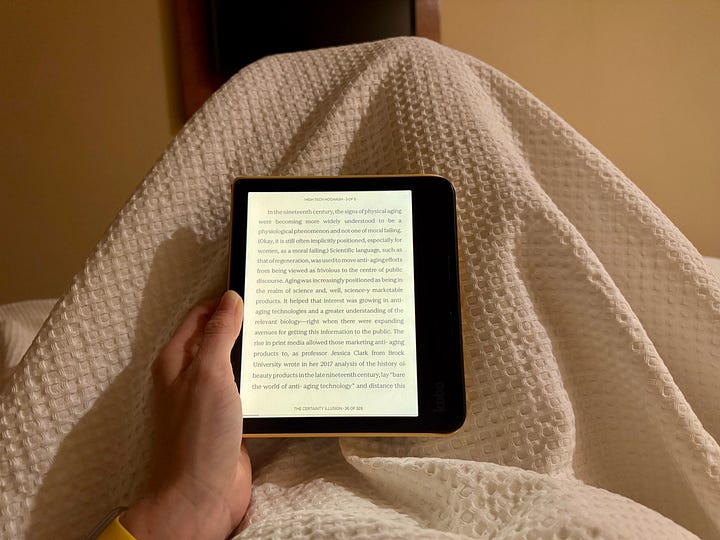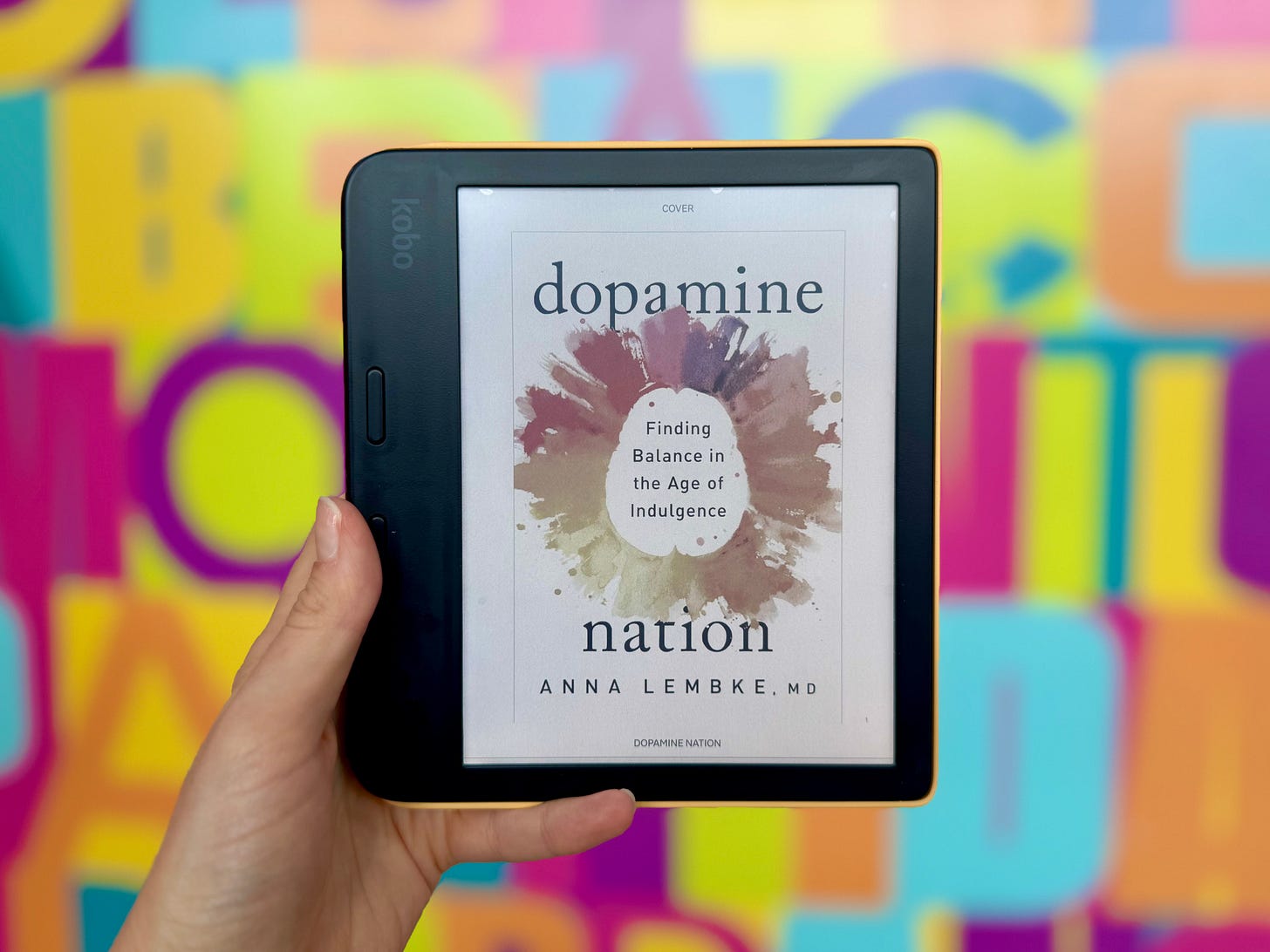Are we all hooked on something?
Anna Lembke’s Dopamine Nation explores how an abundance of pleasure has built a world of pain
Recently I listened to an episode of The Interview featuring Anna Lembke, MD, a professor and medical director of addiction medicine at Stanford University. I was fascinated by the discussion and struck by her calm, open, and measured demeanour. It made the listening experience far more soothing than my typical 2.5X speed political analysis podcasts.
Last week, I used my second-last Audible credit (bye, Amazon!) to download her 2021 book, Dopamine Nation. We are currently exploring Brazil, so I listened to this book on long and terrifying Uber rides through Rio’s chaotic streets and then while lounging by the pool on the top floor of our hotel. I love being by water, and I have to imagine that letting go of one’s addictions is made far easier in settings like these.
Dopamine Nation hooked me from the start with the captivating profiles – one in particular – Lembke writes of her patients. Beyond these stories, I was surprised and captivated by the author’s openness with certain details and emotions from her own life. It’s been a long time since I sensed such an authentic vulnerability (rather than the kind of uncomfortable oversharing we’re so accustomed to seeing).
All these stories gave a page-turning structure to what is really a collection of deep insights into the human condition: the complex duality between pleasure and pain – how the pursuit of pleasure at all costs creates all-encompassing pain, while the pursuit of pain, so often absent in our comfortable little lives, may be the missing ingredient for creating truly pleasurable experiences. “Unlike pressing on the pleasure side,” writes Lembke, “the dopamine that comes from pain is indirect and potentially more enduring.”
This is a book about, ostensibly, a big problem. Usually, books about big problems spend chapters and chapters exploring the nuances of the problem and only occasionally and very meekly hinting at an unachievable solution in the closing paragraphs. This is not one of those books. Lembke clearly has an old-school bias for action, and this book is heavily weighted toward solutions.
The solution is personal — and political
I particularly appreciated the author’s embrace of personal responsibility. Telling people that they can be responsible for solving their own problems is frequently missing and often outright decried in today’s culture, where structural problems are over-emphasized and personal responsibility is minimized. This dilemma just be the perfect example of the pleasure-pain duality: it’s pleasurable to be told it’s not your fault; it’s painful (and almost always untrue) to feel like there’s nothing you can do about it.
At the same time, Lembke is sensitive to how broken the situation for many of our problems is at the societal level. Writing about gastric bypass surgery, she muses:
“We can and should celebrate a medical intervention that can improve the health of so many people. But the fact that we must resort to removing and reshaping internal organs to accommodate our food supply marks a turning point in the history of human consumption.”
In a similar vein, the author poses a nuanced take on the use of pharmaceuticals in treating anxiety and depression. I’ve often wondered what our cultural overreliance on these medications represents — and it appears Dr Lembke shares these concerns:
“In medicating ourselves to adapt to the world, what kind of world are we settling for?”
What kind of a world, indeed.




Radical honesty
One of the book's essential principles for treating addictions of all kinds is radical honesty. In the successful tradition of AA’s Twelve Steps, Lembke believes honesty is the first step in acknowledging that we may have a problem (whatever our ‘drug’ of choice) and eventually doing something about it. Again, I think this is the author revealing her old-school cool. Who talks about honesty these days? We hear a lot about ‘vulnerability’ or ‘misinformation,’ but there’s something much more simple and clean about this idea of honesty as simply telling the truth.
There might be nothing we need more in our ‘post-truth’ world, where even the leader of the free world won’t think twice about broadcasting egregious untruths around the globe. Between the glossy veneer we display on social media, the corporate speak we deploy so as not to offend at work, and the social niceties we lay on thick with friends, radical honesty is a novel but necessary remedy for our times. Ironically, this message felt particularly – well, honest – given what the author shares of her own life.
Wonderful narration, questionable cover
Now onto some of the style rather than the substance of the book. Authors reading their own work is usually either fantastic or terrible. Dr Lembke’s narration fell, happily, into the fantastic camp. She is at once soothing as she is direct; empathetic but also no-nonsense. This is one case where listening to the audio version brought a whole new layer of meaning and feeling to the book.
On a superficial note, although I objectively like the bright and splashy cover, I felt it matched the title better than it reflected the content and tone of the book, which is actually quite serious and grounded.
Don’t let the cover dissuade you, though – this short book is well worth the read.


